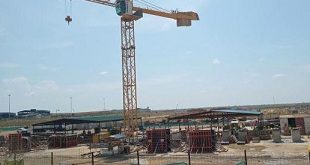
He cited transport costs where he said the average cost of transporting a 20-feet container over a distance of 1,500km in the EAC is $5,000 which is comparatively the same as the cost of moving the same container over the 9,000km between China and Tanzania.
Magufuli also said the EAC region has high electricity costs when compared with the rest of the world partly because business is in the hands of the private sector, which he said is profit oriented and cares less about the common person.
System inefficiencies
Following his tough question to ministers, Magufuli said that the meeting needed to analyse the challenges faced over the past three years in the implementation of the planned projects so as not to again compromise future plans.
He also said the region needs to collect more taxes, use them efficiently and stop illicit financial outflows.
James Musoni, [Rwanda’s Minister of Infrastructure, who represented President Paul Kagame at the summit], said the problem with public funding for expensive infrastructure projects is that the region’s population is too poor to provide the necessary taxes and a majority of EAC partner states already have a high debt burden.
Musoni’s view is in line with that of experts who are cautioning the EAC member states to go slow on borrowing to avoid accumulating too much debt.
Available data indicates that the six countries have a combined GDP of approx. US$147billion. In terms of percentages, it is averaging at around 40% to the GDP and thus, a spike in borrowing would easily compromise the bloc’s relationship with international lenders and economy monitors like the International Monitory Fund and others. So, what next?
Lawrence Bategeka, an economist and deputy chairperson of the committee on national economy in the Parliament of Uganda told The Independent that countries in EAC have been borrowing and must continue to borrow. He said the money borrowed should be put to good use so it can realise tangible long term benefits for the EAC economy.
On funding the big projects, Bategeka said, the EAC states should consider borrowing from emerging lenders like Brazil, Russia, India, China and South Africa (BRICS) which have somewhat soft terms regarding lending policies compared to other lenders like the World Bank.
Going forward, he said EAC countries need to manage their economies better so they can produce, export and earn more and save – this would partly deal with the dependency concept that is entrenched in “our minds as poor countries.”
“…we need to use science and technology to produce more for exports and attract investments which would help us to finance our own projects,” he said.
Some of the summit resolutions
- It assented to the EAC customs management (amendment) bill 2016, the EAC supplementary appropriation bill, 2016, the EAC appropriation bill 2016. The summit also assented to the EAC appropriation bill 2017 and the EAC supplementary appropriation bill 2017
- It received a report on the EU-EAC Economic Partnership Agreement from President Museveni and decided that the EAC continues to engage with the EU for satisfactory clarification of concerns of some partner states on the EPAs.
- The summit directed the council of ministers and partner states to fully implement the single customs
- Concerning the monetary union, the summit directed the council to expedite the establishment of the monetary institute and other institutions according to the roadmap of the East African monetary union.
- The summit directed Tanzania and Burundi to ratify the EAC double taxation agreement and deposit the instruments of ratification by July 2018
 The Independent Uganda: You get the Truth we Pay the Price
The Independent Uganda: You get the Truth we Pay the Price



